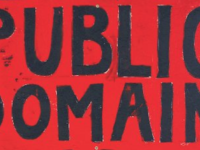The Canadian technology community has a long history of working together with government and regulators to counter online harms such botnets, spam, and malicious hacking. It therefore came as a surprise when the CRTC launched a consultation on addressing botnets that raised the possibility of the regulator stepping in with new blocking mandates. The consultation just completed its first round of comments and in addition to industry experts, there were others that opportunistically looked at the blocking discussion as the chance to promote copyright related blocking or other Internet blocking requirements.
Jonathan Curtis has been at the heart of battling botnets and online harms for decades with work at Bell, the CRTC, and leading security companies. He joins the Law Bytes podcast in a personal capacity to place the online security challenges in historical context and to outline both the benefits and risks that come from the potential blocking approaches raised by the CRTC.
Read more ›
As countries around the globe work to get their citizen vaccinated against COVID-19, a battle over intellectual property rules has emerged at the World Trade Organization. Last year, Canada passed legislation designed to ensure that patents would not pose a barrier to securing supplies of a vaccine or treatment. A year later, developing countries around the world have looked to the WTO to develop similar standards through a waiver process that would speed up access to, and production of, vaccines. Yet the proposal has run into opposition at the WTO, including from Canada.
Thiru Balasubramaniam is the Geneva Representative of Knowledge Ecology International, where he works on IP, health, and trade issues at the WTO, WIPO, and World Health Organization. He joins the Law Bytes podcast to discuss the recent developments at the WTO, the position of developed countries such as Canada, and what this means for global access to critical vaccines.
Read more ›

A Canadian coalition of consumer advocates, civil society and social justice groups, policy experts, activists and independent ISPs will come together in a national Day of Action on Tuesday to demand the immediate implementation of federal measures to deliver affordable internet and wireless services in Canada and to put an end to constantly increasing bills. This week’s Law Bytes podcast brings together three people that bring unique perspectives to the issue:
- Madeleine Redfern, the former mayor of Iqaluit, Nunavut and currently the Chief Operating Officer at CanArctic Inuit Networks.
- Dr. Mary Cavanagh, the Director of School of Information Studies (ÉSIS) at the University of Ottawa and an active researcher on consumer issues in the telecom marketplace.
- Matt Stein, the CEO of Distributel Communications, a leading independent ISP and the chair of CNOC, the Competitive Network Operators of Canada
Madeleine, Mary, and Matt all joined together for a virtual conversation on the impact of access at the community level, the effect on consumers, the state of competition, and what Canada should be doing about the issue.
Read more ›

Canadian Heritage Minister Steven Guilbeault is expected to soon introduce new legislation designed to address online harms through increased regulation. Reports indicate that the bill will target five categories of illegal content: hate speech, terrorist content, content that incites violence, child sexual exploitative content and non-consensual sharing of intimate content. The details will matter, however, as failure to ensure due process for content removal and strict limits on scope will raise constitutionality concerns.
David Kaye is a clinical professor of law at the University of California, Irvine, and served as the United Nations Special Rapporteur on the promotion and protection of the right to freedom of opinion and expression from 2014 until 2020. He joins the Law Bytes podcast to discuss the challenges associated with balancing regulation and preserving freedom of expression online, the policy considerations that governments should be thinking about, and the risks that arise from getting the balance wrong.
Read more ›

For years, Canada resisted extending the term of copyright beyond the international standard of life of the author plus 50 years. That appears to have come to an end with the USMCA, which requires an extension. The Canadian government has just launched a public consultation on the issue, identifying several “accompanying measures” to address concerns about the negative impact of term extension. For the many Canadians that participated in the recent copyright review process, the consultation document comes as huge disappointment as it seemingly rejects – with little legal basis – the review’s recommendation on establishing a registration requirement for the additional 20 years that would benefit both creators and the public.
The consultation is currently open until March 12th. Duke University’s Jennifer Jenkins, who is is a Clinical Professor of Law teaching intellectual property and Director of Duke’s Center for the Study of the Public Domain, joins the Law Bytes podcast this week to help sort through the likely implications of copyright term extension for Canada.
Read more ›











